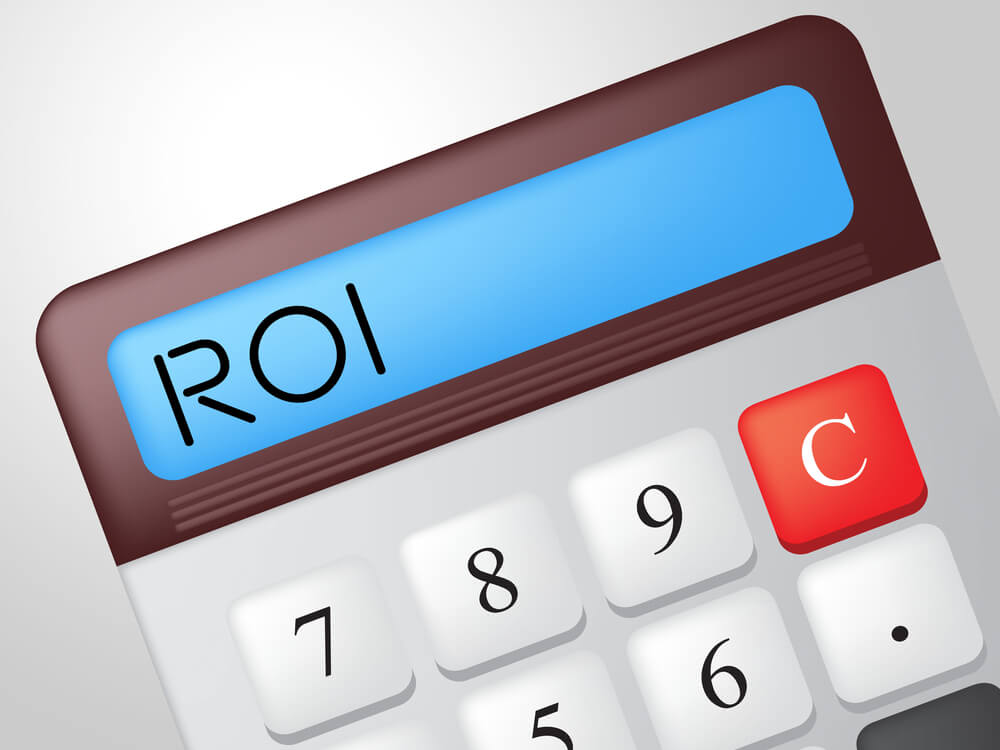Investors all around are looking to get the best real estate investment ROI. But what is ROI? ROI stands for Return on Investment. This is the amount you are getting in return for the amount you are putting or investing in a property. ROI is the best way to measure how your properties are performing overall.
Various commercial properties can be invested in to gain optimum results. The best way how to invest in REITs or Real Estate Investment ROI Trusts. These are similar to stocks for commercial real estate. You can invest in various commercial properties and make the right portfolio for your investment. In the last two years, we saw salons and services not working well, but pharmacies and medical stores flourishing. You can use this data to invest in different properties and ensure that you reap the best benefits out of each of these options.
Many factors, such as mortgage loans, tax, insurance, maintenance, equity, buying rental property income in Canada, etc., affect a real estate investment ROI. Read on to learn more about what is considered a good ROI for commercial real estate investors.
What is a Good ROI for Commercial Real Estate Investors?

A good return on investment depends on the risk factor. If you as an investor are willing to take more risk, you are more likely to expect higher returns. If you are a safe investor with limited risk-taking abilities, then the same ROI will not work for you. So, a good ROI for one investor may not work as a good ROI for another investor.
The ideal return on investment is the one through which you can get equal or higher returns compared to the average returns on the major stock indexes. You don’t need to invest in real estate to get a return on investment. You can also invest in REITs or Real Estate Investment ROI Trusts like stocks. REIT returns are more volatile as compared to physical property.
Investors receive a rental income in the form of dividends. Commercial, residential, and industrial are some REITs to invest in. You can find Canadian REITs on Toronto Stock Exchange and use them as private investments.
How to Calculate ROI (Return on Investment)?

There are many ways to determine the return on investment. To calculate ROI, you can use a standardised formula as follow:
ROI = Net Income ÷ Costs
Net Income = Gross Income – Costs
Hence, the ROI of a property is equal to the net income derived after subtracting the costs from the overall revenue and dividing the sum by the total costs.
Let us dive deeper into the two main ways of calculating ROIs.
The Two Ways of Cost Calculation
There are two main methods of calculating ROI: cost method and out-of-pocket method.
-
Cost Method
When you purchase a property with cash, the calculation is done with the cost method. Using this method, you can calculate the ROI by comparing the investment gain to the initially incurred costs on a specific property.
For example, if you have purchased a property at $200,000 with an overall expense of $50,000, you will have to value your property at $300,000. The extra $50,000 on the property is your total gain on this property by using the cost method.
Calculating ROI in this instance by the Cost Method is :
50,000 ÷ 250,000 = 0.2 or 20%
-
Out-of-Pocket Method
In a different scenario, you get a higher return on investment when you finance a property using a loan. This method compares the home’s current equity to its market value for a raised ROI.
For example, you bought the same property for the same price in the previous example, but this time you financed it using a loan with a down payment of $30,000. This $30,000 is your out-of-pocket expense along with the $50,000 you already spent on the property. This brings the total expense to $80,000. So now, when you value the property at $300,000, the potential profit is $220,000.
In this case, the ROI will be :
220,000 ÷ 300,000= 0.73 or 73%
You can get a higher ROI in the second case because of the leverage you create on the property. So, when you finance a property, you gain more returns than an all-cash property.
How to Consider Income from a Real Estate Investment Trust (REIT) for Taxing?
REITs or Real Estate Investment Trusts are companies that ensure the operations and financial functioning of well-performing real estate. Investors can invest in this option to get a return. REITs are the best source for investing in real estate when you are looking to make smaller investments and not invest in a full property at a sole capacity. This comparatively flexible method allows space for micro-investments in real estate.
REITs mainly use three ways to process the pay-outs to their investors :
-
- In the form of dividends : REITs consider paying their investors like dividends as they are deemed real-estate owners. This amount is taxable at the same rate as your regular income.
- In the form of capital gains distribution : Under capital gains distribution, you receive the return on your capital invested in the real estate. The amount with this method is taxable at lower rates than regular income.
- In the form of returns on capital : This is considered an investment as you are investing in the capital amount of a real estate property. So, any investments thereof will be received as a return on capital, and these will not be taxable as you have invested in the property’s worth.
Some of the best REITs to invest in are commercial real estate. Let us check these out in detail :
Commercial Real Estate

Commercial real estate is property that is used for business purposes like office buildings, retail buildings, industrial buildings, or warehouses. There are several reasons for investing in commercial property.
Pros of Investing in Commercial Property
-
Higher Rental Income
Commercial properties come with a higher yield on rental income. You can get higher profits as compared to residential real estate. The tenants pay most of the repairs and operational costs, leading to a higher return on investment.
-
Long Leases
Generally, commercial leases last from 1 to 10 years; some can even go longer. This ensures you have a lasting relationship with the business currently leasing your property and develop long-term business relations.
-
Variety of Portfolio
Investing in commercial real estate can diversify your portfolio. You can invest in many commercial businesses and see that while some may not get you your desired rate of returns, other properties will gain you returns you have not even thought of.
Cons of Investing in Commercial Property
The pros of anything are accompanied by the cons, which is no different for the returns on investment in commercial property. Let us check out some of the risks of this investment.
-
Higher Risk
It is inevitable that you will get more rewards only if you put in more risk. Commercial properties are more open to the public damage of it. There is a larger opportunity for damage to your commercial property than personal property.
-
Financing
The capital required to invest in a commercial property is way higher. The up-front capital you need in a commercial estate comes with a heavy price tag. So if you are willing to take the finances and invest in this property, only then should you enter such a rigorous investment market.
-
Time and Maintenance
Commercial properties are mostly used during operational working hours and days. This leaves only evenings and nights for your property maintenance and can cause a problem if not handled well. Sometimes, if you have multiple tenants, the maintenance of such a property can become cumbersome.
Conclusion
ROI is a tricky business, but if you are investing your time and effort in the right way and are motivated to take a considerable risk, then this structure could work well for you. Make sure your real estate investment ROI syncs with your portfolio. Try diversifying your portfolio to gain the maximum returns from a combination of the properties you invest in.
You May Also Read :
| Rental Property | Maximise ROI For Rental Property |
| How to Increase Real Estate Investment Value | Increase Value in Real Estate Investment |
| Real Estate Investment | Real Estate Investment vs Crypto Currency |
| Canadian real estate | Investing in Canadian real estate |
Frequently Asked Question (FAQs)
Why are Canadian REITs falling?
The Canadian REITs are falling because the Government pledges to change the tax treatment of apartment REITs.
Are Canadian Reits good to Invest in?
Canadian REITs are good for investment as they are considered good investments with considerable returns and a calculated risk.
What commercial property type has the most upside?
Properties that have the most renting tenants have the most upside. These properties have a great return on investment (ROI).
Is commercial real estate an inflation hedge?
Commercial real estate has been considered an inflation hedge for a while because they have given property owners the rental prices ahead of a price-rising environment.
Can I get a residential mortgage on a commercial property?
Several banks offer Loan Against Property to customers for both residential and commercial properties.



































